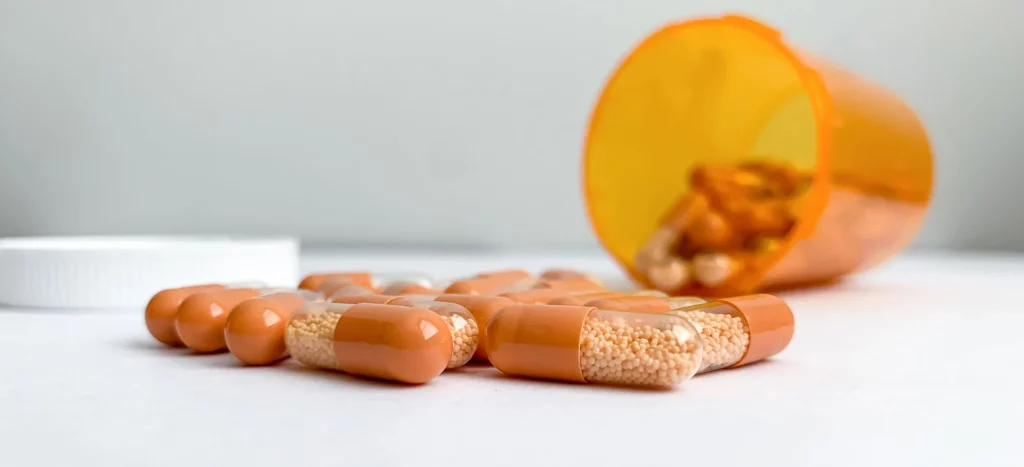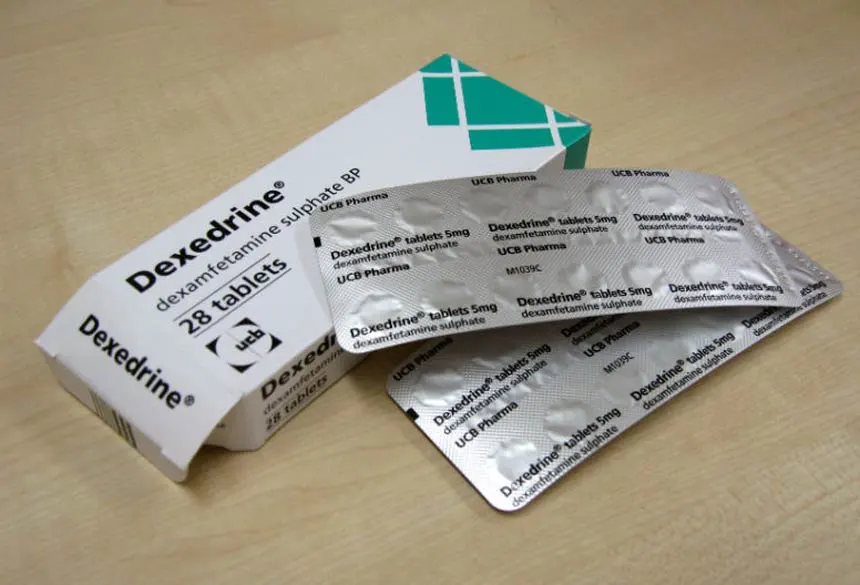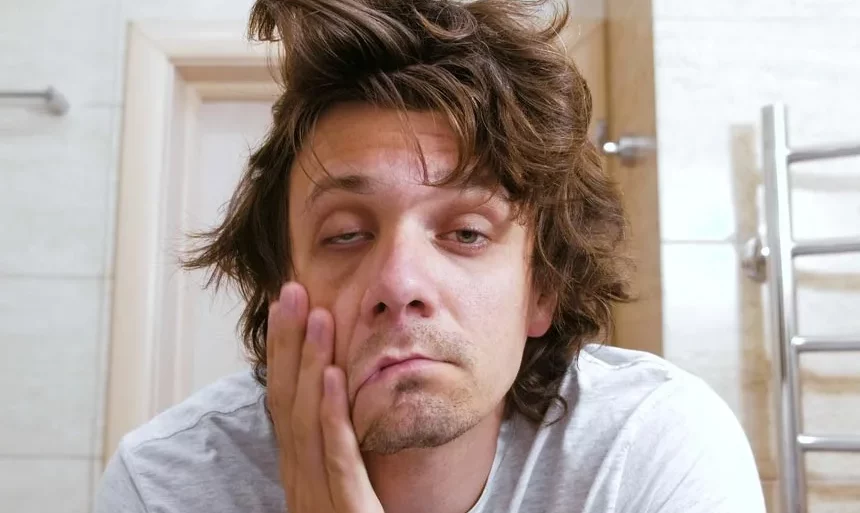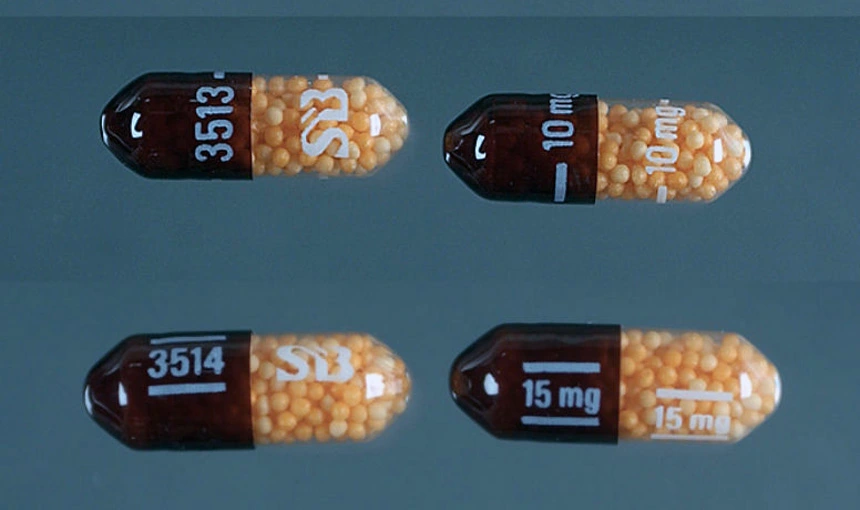What Is Dexedrine?
Table of Contents
Dextroamphetamine, or Dexedrine as the brand name, is a type of amphetamine used as a prescription stimulant medication. Stimulant medications are used to treat mental conditions such as attention deficit hyperactivity disorder (ADHD) or narcolepsy. With excessive use, or over time, Dexedrine addiction can and does develop in some individuals.
These medications are beneficial for helping these individuals manage their struggles however, they can lead to other issues, addiction included. Dextroamphetamine and other amphetamines are able to be used in prescription medications due to the Controlled Substances Act (CSA).
The CSA is a federal U. S. drug policy regulating the production, distribution, and use of drugs. Under this act, substances are placed into a category of drugs labeled as Schedule I – V (1 – 5) drugs.
As Schedule I drugs do not have any accepted medical use and also have a high potential for abuse, Schedule V drugs have accepted medical uses with a low potential for abuse. Dextroamphetamine is classified as a Schedule II Drug with a high potential for abuse and restricted medical uses.
The Drug Enforcement Administration (DEA) is the federal agency that ensures the CSA is properly enforced. Anyone managing controlled substances must be registered with the DEA to be allowed to legally manage them.
How Does Dexedrine Affect The Body?
Dexedrine, as well as amphetamines, is a form of central nervous system stimulant which works within the brain to increase the levels of certain natural brain chemicals.
These chemicals are called neurotransmitters and they are responsible for functions within the body including:
- Thoughts
- Feelings or emotions
- Organ functions
- Motivation
- Energy
Dexedrine affects two specific neurotransmitters within the brain called dopamine and norepinephrine. The neurotransmitter dopamine is part of the brain’s reward center and is responsible for the motivation and reinforcement of behaviors and actions.
The neurotransmitter norepinephrine, also known as noradrenaline, is responsible for the body’s fight or flight response and levels of energy. Norepinephrine also affects blood pressure and flow within the body.
How Does Dexedrine Work?
Neurotransmitters, as well as other chemicals and cells within the body, can be broken down and repurposed to fit the needs of the body. This can lead to having lower levels of necessary neurotransmitters or body chemicals.
Dexedrine works by blocking the reuptake of dopamine and norepinephrine which stops these two neurotransmitters from being reabsorbed and repurposed. Increasing the levels of dopamine and norepinephrine provide the body with energy and motivation.
How Long Does Dexedrine Last?
Dexedrine is a fast-acting drug and an individual typically begins feeling its effects within 30 minutes to an hour. The immediate effects of Dexedrine typically include:
- Wakefulness
- Increased blood pressure and heart rate
- Heart palpitations
- Aggression
- Decreased appetite
Dexedrine’s effects on the brain support the mental state of individuals struggling with mental health. Mental health conditions are important to understand within an individual for them to properly manage their experience.
Mental Health Disorders
Mental illness, mental health disorders, and mental health conditions are all different names for the same category of psychological conditions. Mental illness is a traditional name for the conditions however, as the understanding and stigma around mental health continue to improve, the name branches away from mental illness.
Mental health disorders influence the daily functions of an individual and can be very difficult to manage without help or proper treatment. Treatment for a mental health disorder does not cure the individual of their disorder.
A disorder is usually a life-long condition that an individual lives with and manages throughout their life. A disorder can create a chemical imbalance within the brain and lead to poor quality of well-being throughout an individual’s daily life.
One of the most common forms of treatment for mental health disorders is medication. This treatment allows for individuals to support proper brain and body functions through their conditions.
What Causes Mental Disorders Within Individuals?
As there isn’t a determining factor that ultimately leads to mental health disorders, the many different factors that can lead to a mental disorder or mental disorders include:
- Passed down genes or family history
- Brain injury
- Life experiences (increased probability if occurs during childhood)
- – Trauma
- – Chronic stress
- – Abuse
- Mother’s intake of toxic chemicals during pregnancy
Individuals struggling with mental health disorders are often prescribed medications as a way to manage their experience. It is important to take prescription drugs as prescribed to properly manage the symptoms without bringing harm to the body.
Altering a prescribed dosage without the approval of the prescribing doctor can lead an individual to abuse prescription stimulants. Increasing the dosage may influence an individual to constantly take more of the drug.
What Is a Substance Use Disorder?
A substance use disorder is a type of mental disorder that inhibits an individual from properly managing the use of substances such as illicit or legal drugs, alcohol, or medications. Substance use disorders can lead to an addiction.
Individuals with substance use disorders are half as likely to have a co-occurring disorder as they are to not have one. According to the Substance Abuse and Mental Health Services Administration (SAMHSA), a co-occurring disorder is defined as having another mental disorder aside from a substance use disorder.
A substance use disorder can cause an individual to abuse Dexedrine. To better manage this disorder, an individual often undergoes behavioral therapies to properly manage their substance use.
What Is Attention Deficit Hyperactivity Disorder?
ADHD is a disorder that is characterized by difficulty managing impulses, attention, or activity. Individuals with ADHD struggle through their daily lives while managing their symptoms.
ADHD can put stress on their relationships and daily experiences throughout their life. Common symptoms of ADHD can appear as:
- Daydreaming often
- Misplacing things often
- Unable to sit still
- Excessive talking
- Difficulty controlling temptation
- Difficulty taking turns
ADHD is typically diagnosed in children between ages 3-7 however young adults and individuals may have been left undiagnosed. Undiagnosed individuals are often unaware of the difficulties they have been experiencing and find comfort in receiving a diagnosis later in life.
Individuals with ADHD are dopamine deficient and benefit from using Dexedrine or other stimulant medications to promote dopamine levels in their brains. Dexedrine is included in the different ADHD treatment medications.
As Dexedrine promotes focus, it greatly helps treat ADHD symptoms within individuals and supports them throughout their daily functions.
What Is Narcolepsy?
Narcolepsy is a disorder that impairs the brain’s control over the sleep-wake cycles. The sleep-wake cycle refers directly to the typical 16 hours of daytime wakefulness and 8 hours of night-time sleep.
Individuals with narcolepsy can experience disrupted sleep throughout the night, waking up often. Even after properly resting, an individual with narcolepsy may face daytime sleepiness and even fall asleep during activities such as eating or talking.
This can greatly affect their abilities to properly function and manage their lives. Some individuals with narcolepsy can experience sleep paralysis, total paralysis before or after waking up, or cataplexy, and muscle weakness while still awake that can cause an individual to go limp.
Cataplexy is present in one of the two different types of narcolepsy. Type 1 narcolepsy is narcolepsy with cataplexy and type 2 narcolepsy is narcolepsy without cataplexy. Dexedrine is typically not the first option for narcolepsy treatment.
Modafinil is another form of stimulant treatment, is less addictive, and has fewer side effects than other stimulants. Dexedrine may be prescribed if modafinil is not effectively working for an individual.
Drug Addiction and Substance Abuse
An individual struggling with addiction face immense difficulties in trying to abstain from substance abuse. While trying to manage side effects and withdrawals from substance abuse, an addicted individual will often relapse without assistance.
According to the National Institute on Drug Abuse, addiction is classified as a relapsing disorder and a complex disease that can influence drug-seeking behaviors no matter the negative consequences that may follow.
With chronic or extended substance abuse, the body and mind build a tolerance toward the substance. Tolerance makes it so an individual needs an increased dosage of the same drug to receive the same effect.
Building a tolerance can lead an individual to ingest an increased amount of a drug that continues to encourage drug dependence within the body. It is important to seek addiction treatment to best recover from drug use.
Is Dexedrine Addictive?
Yes, Dexedrine is addictive. Due to Dexedrine’s effects on dopamine within the brain, taking in this amphetamine can lead to addiction. Avoiding unnecessary drug use can best help an individual avoid addiction.
Since individuals with ADHD have lowered levels of dopamine within their body, Dexedrine and other ADHD medications are prescribed to increase those levels as well as help manage the other difficulties with ADHD.
As Dexedrine and other ADHD drugs are prescription stimulants, taking an increased dose without the advice of a medical provider can lead to a euphoric high. Dexedrine abuse and misuse can develop into a substance addiction.
Why Is Dexedrine Prescribed If It Is Addictive?
Dexedrine can be a very beneficial medication for individuals struggling with ADHD or narcolepsy. Dexedrine provides these individuals with the proper support they need to manage their disorders.
Despite Dexedrine being an addictive substance, it does not mean an individual will become addicted to it. Dexedrine can lead to addiction however, there is a difference between developing dependence and addiction.
Dependence vs. Addiction
A tolerance can be seen in both dependence and addiction but there are distinct differences in the behaviors and actions of an individual with dependence upon Dexedrine and a Dexedrine addiction.
With the continued use of Dexedrine at higher dosages, the body can build a physical dependence upon the drug. Taking a prescription stimulant as prescribed can eventually lead to needing an increased dosage for the drug to maintain the same effects.
An individual experiencing a lowered effectiveness from the drug may fear this drop however, they typically will develop a tolerance towards the drug with long-term use. An individual can best avoid Dexedrine abuse or amphetamine addiction by following their prescribed dosage.
As this tolerance can also be seen in an addiction, the difference between a Dexedrine addiction is stimulant abuse and misuse. An addiction to prescription amphetamines may cause an individual to take more than the prescribed amount.
Dexedrine abuse within an individual can be seen through the actions and behaviors of an individual including:
- Crushing a capsule and:
- – Snorting the substance
- – Injecting the substance
- Combining the medication with other substances
- Taking an increased dosage
- Taking another individual’s medication
All long-term use of Dexedrine is likely to lead an individual to experience withdrawal symptoms when quitting the substance. It is important to contact an individual’s treatment provider when adjusting or stopping Dexedrine use to avoid unwanted and potentially dangerous withdrawals.
Dexedrine Side Effects
The effects of Dexedrine do not change from many other amphetamine medications. Despite their helpful effects in supporting individuals manage their experiences, they can also cause side effects which include:
- Nervousness
- Headaches
- Changes in libido or sexual dysfunction
- Dry mouth
- Painful menstrual cramps
- Constipation
- Nausea
- Diarrhea
- Weight loss
- Changes in appetite
- Dizziness
- Heart palpitations or irregular heart rate
- Increased blood flow
Dexedrine Health Risks
As Dexedrine influences norepinephrine within the body, it can aggravate the regular functions of the body. This prolonged effect within the body can lead to decreased function or bodily dysfunction.
Individuals with long-term use of prescription stimulants have an increased risk of health difficulties within their body including:
- Changes within the brain
- Psychosis
- Cardiovascular diseases
- – Heart disease
- – High blood pressure
- – Stroke
- Behavioral changes
Can Someone Overdose On Dexedrine?
Yes, it is possible to overdose on Dexedrine. Although an individual abusing Dexedrine can take too much of the drug and face life-threatening circumstances, an overdose occurs more often with the combination of other substances alongside Dexedrine.
It is important to inform an individual’s doctor about other medications that are being taken or prescribed to avoid overdose or sudden death. Some of the drugs that can lead to overdose include:
- Alcohol
- Cannabis or marijuana
- Opiates
- Opioids
- Some antidepressants
What Happens If Someone Takes Too Much Dexedrine?
It is possible for someone to accidentally take too much of their medication however, it is unlikely that an individual will overdose on Dexedrine alone. Within adults, a lethal dose of Dexedrine can be seen as 20-25 milligrams of Dexedrine per kilogram of body weight.
To put this in perspective, if someone weighs 165 pounds, their lethal dose would be around 1,500 milligrams of Dexedrine. The maximum dosage of Dexedrine that is prescribed for individuals is 30 milligrams for extended release and 40 milligrams for immediate release.
Every individual has their own state of health and varying bodily conditions. Taking in too much Dexedrine can aggravate certain conditions within an individual, usually relating to cardiovascular conditions such as heart conditions.
It is important to provide an individual’s prescribing doctor with the proper information about their body to avoid placing them in an undesirable situation.
Signs Of A Dexedrine Overdose
As Dexedrine affects the blood flow within the body, it can also influence high blood pressure and cardiovascular health. If you or a loved one are experiencing these overdose symptoms, call the poison control helpline at 1-800-222-1222 or visit the poison control webpage.
An individual overdosing on Dexedrine can lead to a heart attack, stroke, or even sudden death. In the case of a medical emergency, call 911 immediately. The signs of a Dexedrine overdose include:
- Dark and red-colored urine
- Vomiting
- Chest pain
- Fever
- Psychotic symptoms
- Hallucinations
- Intense paranoia
- Confusion
- Seizures
- Dizziness
- Fainting
- Coma
- Intense body tremors
- Difficulties breathing
Dexedrine Withdrawal Symptoms
Individuals that want to stop Dexedrine use may stop using all at once however, they may face heavy backlash from it. With short-term use of Dexedrine, individuals stopping use are likely to face mild to no withdrawals.
Suddenly stopping Dexedrine after long-term use can cause individuals to experience severe withdrawals and have a negative effect on an individual’s health. It is important to speak with an individual’s medical provider before altering a prescribed dosage.
There are many psychological symptoms that make it increasingly difficult to manage withdrawals. Speaking with a provider first can help with avoiding unwanted and possibly dangerous withdrawal symptoms including:
- Fatigue or low energy levels
- Depression
- Difficulty sleeping or insomnia
- Difficulty focusing
- Increased appetite
- Anger or agitation
- Cravings
- Paranoia
Dexedrine Addiction Treatment
Individuals may find difficulty in stopping drug abuse and seeking out treatment. Thankfully, there is addiction treatment available for Dexedrine abuse. Being a stimulant medication, cleansing the body from Dexedrine is one of the first steps toward recovery.
When going into addiction treatment at a treatment facility, it is important to keep in mind that there isn’t one form of treatment that is right for everyone. Every individual faces their own struggles in substance addiction and has their own needs that need to be met for recovery.
An addiction treatment program for one individual may vary for another. There are many different treatment options available to best assist individuals in their recovery journey. A treatment center also has mental health resources and therapy available to individuals to better support them through their recovery.
While there is addiction medicine for drug abuse, Dexedrine abuse is not one of the drugs that require medication for addiction treatment. There are some medications for other drugs. Individuals who abuse alcohol, opioids, or tobacco may find comfort in this medication for treatment.
Medical Detox
Medical detox is a treatment process that allows individuals struggling with substance abuse to cleanse themselves of substances under medical supervision. In this drug detoxification, individuals live onsite at a treatment center and have 24h care.
Withdrawals from substance abuse and addiction are what makes recovery so difficult to manage. Many of the symptoms experienced can be relapse-provoking and even possibly dangerous to the individual’s body.
Medical professionals watch over an individual’s body and help them properly return to a balanced state within their bodies. Medical detox isn’t necessary for managing Dexedrine abuse specifically however, it may be helpful in safely processing withdrawal symptoms.
This treatment can assist individuals comfortably through withdrawals. A Dexedrine detox, as well as other stimulant detoxes, will often range from 7-10 days in length but can last up to two full weeks. This length of time varies depending on the substance detox.
According to the National Institute on Drug Abuse, a medical detox does not help an individual with recovering from the neurological changes undergone through stimulant abuse. After going through the drug detoxification treatment process, an individual must continue to utilize addiction treatment services available to them to maintain recovery.
Inpatient Treatment
Inpatient care requires individuals to live onsite at treatment centers. In a treatment center, an individual can receive professional treatment advice from a certified addiction professional.
While having many treatment options is great, picking those options can be difficult. This treatment provider will help an individual go through available treatment programs and create an agenda that best fits the individual.
Outpatient Treatment
Outpatient care is less intensive than inpatient care. In outpatient care, an individual does not live onsite at treatment centers. Some individuals may find benefits in outpatient care which allows them to continue activities such as working.
As it is less intensive, outpatient care is also less expensive and more financially manageable for some individuals. Treatment programs for outpatient therapy typically include behavioral therapies, support groups, and education on the effects of substances.
An individual often participates in support groups and receives training in this treatment process. This greatly assists individuals in rebuilding possibly lost or regressed social skills in a safe and comfortable environment.
Behavioral Therapy Treatment
There are many treatment options available, however, one of the most supportive treatments is behavioral therapy. According to the National Institute on Drug Abuse, behavioral therapies are one of the most common forms of treatment for drug abuse treatment.
This form of treatment allows individuals to properly rebuild their lives with solid and supportive methods. Individuals understand themselves and can recognize their own behaviors much clearer. Many of the behavior therapies include:
- Relapse prevention training
- Recognition and correction of negative behaviors
- Education about continued drug use
- Stress management
- Support groups
Finding Addiction Treatment
Trying to find the best treatment centers for you can be frustrating and difficult, especially when struggling with stimulant abuse. Find Addiction Rehabs is here to make that process easy for you.
Whether finding a treatment center in your location or connecting you with recovery tools and resources, our hotline is available 24/7 to make sure you can get the help you need, anytime you need it.
Trying to recover from addiction alone is a treacherous journey. A treatment facility is equipped with tools and resources to support you through recovery. Find Addiction Rehabs is here to help. Call us today!
Deborah Tayloe is a freelance writer specializing in health and sciences. Deborah earned a B.S.Ed. in Secondary Education/English, accompanied by a Spanish minor. Her writing expertise allows her to craft engaging, impactful articles to help people be well.
In addition, she holds a fully accredited Certificate of Natural Medicine and is a certified Herbalist. Through her understanding of complementary medicine, Deborah helps medical professionals give people the information they need to embrace natural approaches to wellness.
When she’s not working, Deborah trains for 5K races and advocates for animal rights.







